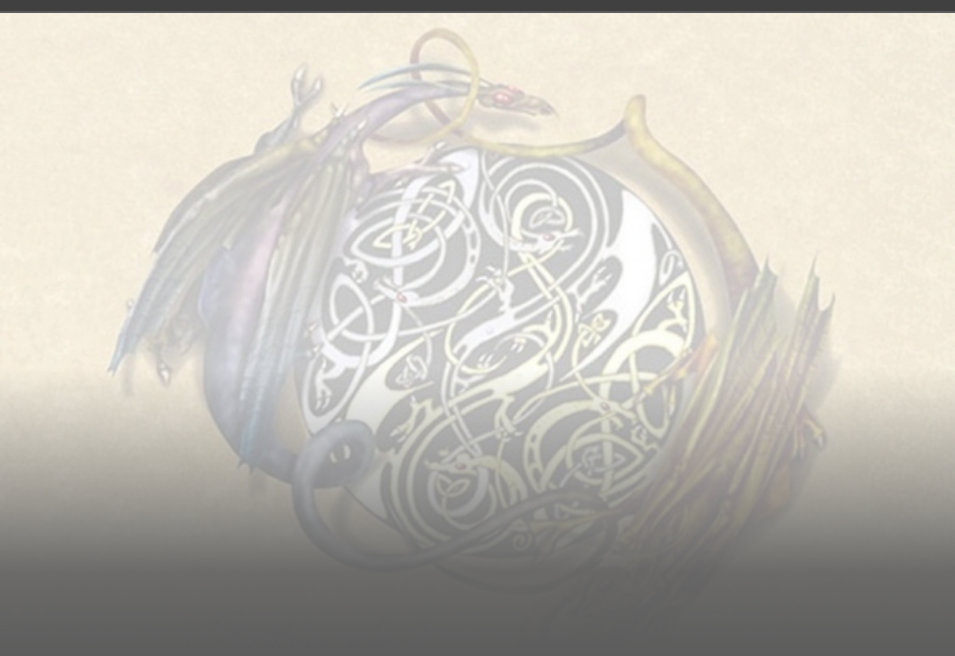

Crystal’s Place
my little piece of the web


© Crystal (aka Dragonfae) 2010-2026
Friday the 13th
An unlucky day?
Are you by chance even slightly superstitious? Do you have Triskaidekaphobia, a fear of the number 13, or Paraskavedekatriaphobia, a fear of Friday the 13th? (Yes, there are names for them!) Or do you just think of Friday the 13th as an unlucky day? Ever thought about why that might be? One can find any number of articles speculating on why Friday the 13th has been deemed “unlucky” and some make more sense than others. In doing a little bit of nosing around, I found a couple of tidbits that seem to have that “ring of truth”, at least to me. Friday: The name Friday comes from when the days of the week were initially named. Friday was originally known as frigedæg or “Freya’s Day” in Old English. Freya is the Teutonic goddess of love, beauty, and fertility (I should note here that some seem to think Frigg was the goddess that Friday was named after and others think Frigg and Freya are interchangeable … since I don’t follow the Norse pantheon, I won’t give an opinion but only note that either name may have been the goddess this day was named for). In Middle English, frigedæg was morphed into fridai. Friday is the only day of our current week named after a goddess. Thirteen: The number 13 started getting a bad rap in the Middle Ages … possibly because 12 was considered a “perfect number” by numerologists and considered to represent harmony and balance (there are: 12 months in a year, 12 signs of the zodiac, 12 gods of Olympus, 12 labors of Hercules, 12 tribes of Israel, and 12 apostles of Jesus, etc), while 13 would be one past “completeness” and adding chaos to the mix. 13 is also referred to (some think negatively) in the Bible a number of times (Judas being the 13th person to attend the Last Supper, the Jews murmured 13 times against God in the exodus from Egypt, the thirteenth Psalm concerns wickedness and corruption, etc). Many calendar years contain 13 full moons … the 13 th full moon supposedly being when witches would fly off into the night and cause havoc. It’s also the number of menstrual cycles every woman has each year. Seeing any pattern here? There are those who speculate that Friday the 13 th has been vilified by the Western culture because of the associations with women. Whether or not that is true isn’t for me to say, but given the number of feminine themes that have been pushed aside by our male-dominated civilization it makes some sense to me that it’s possible this is at least part of the reason 13 is maligned. There are a host of other theories as well, from the decimation of the Knights Templar (on Friday October 13, 1307) by officers of King Philip IV of France to the crucifixion of Christ (on a Friday), as to why Friday the 13 th is considered unlucky. For some interesting reading on Friday the 13 th and some of the speculation on why it is considered unlucky, check out these pages: Why Friday the 13th Is Unlucky and Why is the number 13 considered unlucky? Regardless of what the actual reason is (let’s face it, no one really knows) I choose to look at Friday the 13th as a good day … a lucky day for me. Thirteen is a powerful number. It is one of the Prime numbers (a number divisible only by itself and 1) as well as one of the Fibonacci numbers (the seventh in the series). 13 appears in many places within the world that we experience: there are 13 major joints in the human body, the moon travels 13 degrees across the sky every day, and there are 13 lunar cycles in a solar year. Even our current calendars are based on 13 … 4 seasons each with 13 weeks in them for a total of 52 weeks. In two dimensions, six circles placed around a seventh central circle is considered by mathematicians to be geometric efficiency and perfection … taking this same configuration into three dimensions gives us 12 spheres arranged around a central sphere (for a total of 13), which is the most compact three-dimensional arrangement found recurring in nature. I could go on and on, but I think I’ll stop here. The number 13 (along with 3 and 7) is one that I find recurring frequently in my life. For that reason alone, it holds a special significance for me so I would never consider it “unlucky”. And if we get really lucky, we’ll get a full moon too.


Crystal’s Place
my little piece of the web


© Crystal (aka Dragonfae) 2010-2026
Friday the 13th
An unlucky day?
Are you by chance even slightly superstitious? Do you have Triskaidekaphobia, a fear of the number 13, or Paraskavedekatriaphobia, a fear of Friday the 13th? (Yes, there are names for them!) Or do you just think of Friday the 13th as an unlucky day? Ever thought about why that might be? One can find any number of articles speculating on why Friday the 13th has been deemed “unlucky” and some make more sense than others. In doing a little bit of nosing around, I found a couple of tidbits that seem to have that “ring of truth”, at least to me. Friday: The name Friday comes from when the days of the week were initially named. Friday was originally known as frigedæg or “Freya’s Day” in Old English. Freya is the Teutonic goddess of love, beauty, and fertility (I should note here that some seem to think Frigg was the goddess that Friday was named after and others think Frigg and Freya are interchangeable … since I don’t follow the Norse pantheon, I won’t give an opinion but only note that either name may have been the goddess this day was named for). In Middle English, frigedæg was morphed into fridai. Friday is the only day of our current week named after a goddess. Thirteen: The number 13 started getting a bad rap in the Middle Ages … possibly because 12 was considered a “perfect number” by numerologists and considered to represent harmony and balance (there are: 12 months in a year, 12 signs of the zodiac, 12 gods of Olympus, 12 labors of Hercules, 12 tribes of Israel, and 12 apostles of Jesus, etc), while 13 would be one past “completeness” and adding chaos to the mix. 13 is also referred to (some think negatively) in the Bible a number of times (Judas being the 13th person to attend the Last Supper, the Jews murmured 13 times against God in the exodus from Egypt, the thirteenth Psalm concerns wickedness and corruption, etc). Many calendar years contain 13 full moons … the 13 th full moon supposedly being when witches would fly off into the night and cause havoc. It’s also the number of menstrual cycles every woman has each year. Seeing any pattern here? There are those who speculate that Friday the 13 th has been vilified by the Western culture because of the associations with women. Whether or not that is true isn’t for me to say, but given the number of feminine themes that have been pushed aside by our male-dominated civilization it makes some sense to me that it’s possible this is at least part of the reason 13 is maligned. There are a host of other theories as well, from the decimation of the Knights Templar (on Friday October 13, 1307) by officers of King Philip IV of France to the crucifixion of Christ (on a Friday), as to why Friday the 13 th is considered unlucky. For some interesting reading on Friday the 13 th and some of the speculation on why it is considered unlucky, check out these pages: Why Friday the 13th Is Unlucky and Why is the number 13 considered unlucky? Regardless of what the actual reason is (let’s face it, no one really knows) I choose to look at Friday the 13th as a good day … a lucky day for me. Thirteen is a powerful number. It is one of the Prime numbers (a number divisible only by itself and 1) as well as one of the Fibonacci numbers (the seventh in the series). 13 appears in many places within the world that we experience: there are 13 major joints in the human body, the moon travels 13 degrees across the sky every day, and there are 13 lunar cycles in a solar year. Even our current calendars are based on 13 … 4 seasons each with 13 weeks in them for a total of 52 weeks. In two dimensions, six circles placed around a seventh central circle is considered by mathematicians to be geometric efficiency and perfection … taking this same configuration into three dimensions gives us 12 spheres arranged around a central sphere (for a total of 13), which is the most compact three- dimensional arrangement found recurring in nature. I could go on and on, but I think I’ll stop here. The number 13 (along with 3 and 7) is one that I find recurring frequently in my life. For that reason alone, it holds a special significance for me so I would never consider it “unlucky”. And if we get really lucky, we’ll get a full moon too.



































